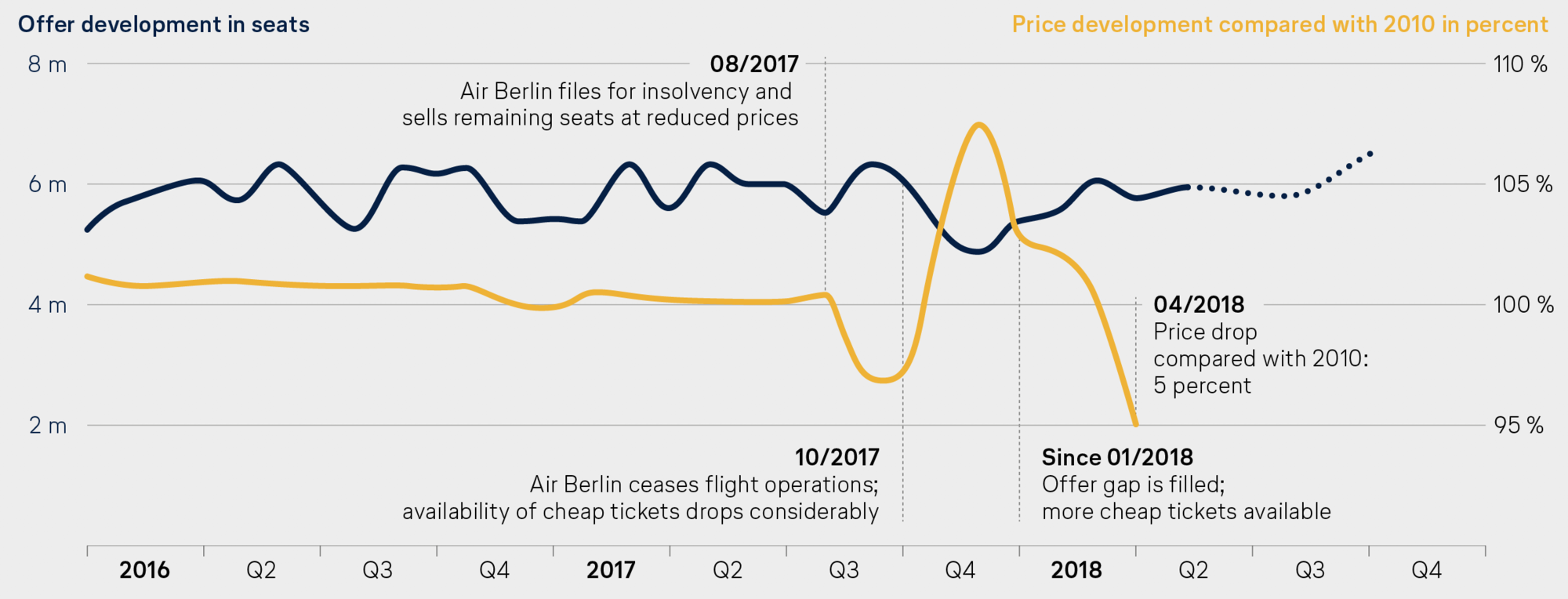German domestic air traffic
Low Prices Dominate
The level of competition in air transport is high. This is a priority for policy-makers and the Lufthansa Group believes this is right, as long as the competition is fair. In the long term, further consolidation is absolutely necessary – and acceptable from a consumer point of view.
Development of capacities and prices in german domestic air traffic

Source: DESTATIS, SRS-Analyser
Capacity record and falling prices
Many people doubted it: only a few months after the insolvency of Air Berlin, the capacity gap in domestic air traffic in Germany was completely closed. In October 2018, compared with the previous year – the last operating month of Air Berlin – there will be more seating capacity in German domestic air traffic. Eurowings plays a key role in this, as do foreign airlines such as easyJet.
At the same time, ticket prices are falling. Since 2010, the Federal Statistical Office has been pointing out how expensive German domestic flights are. Throughout the entire period, tickets have never been as cheap as in April 2018: domestic flight tickets were 5 percent cheaper than in 2010. In the same time, the consumer price index increased by 10.7 percent.
Further strengthening air traffic
Underlining capacity and price developments in Germany: competition in air traffic is alive and kicking. However, it is increasingly difficult to be profitable despite rising passenger numbers. Major influencing factors from a policy point of view:
Enabling consolidation: In Europe, some 240 airlines are competing for passengers. This is not a viable market structure in the long term, further consolidation is absolutely necessary. Policy-makers must not obstruct these market mechanisms and should enable further acquisitions.
Making airports efficient: Policy-makers have largely liberalised the airline market and thereby made it more efficient. However, competition between the relevant airports is very limited. In their capacity as guardians of the market and of fair conditions, policy-makers thus must demand top quality and reasonable prices.
Lowering air traffic tax: In 2017 alone, German airlines paid 590 million euros in air traffic tax. Transport policy-makers have been advocating a lowering of this tax for years – they should be heard.
Covering a share of the aviation security costs: According to the coalition agreement, the federal government is planning to cover a share of aviation security costs. They are currently paid only by the airlines, even though the protection of citizens against terrorist attacks is one of the government’s core responsibilities.
Development of capacities and prices in german domestic air traffic

Source: DESTATIS, SRS-Analyser